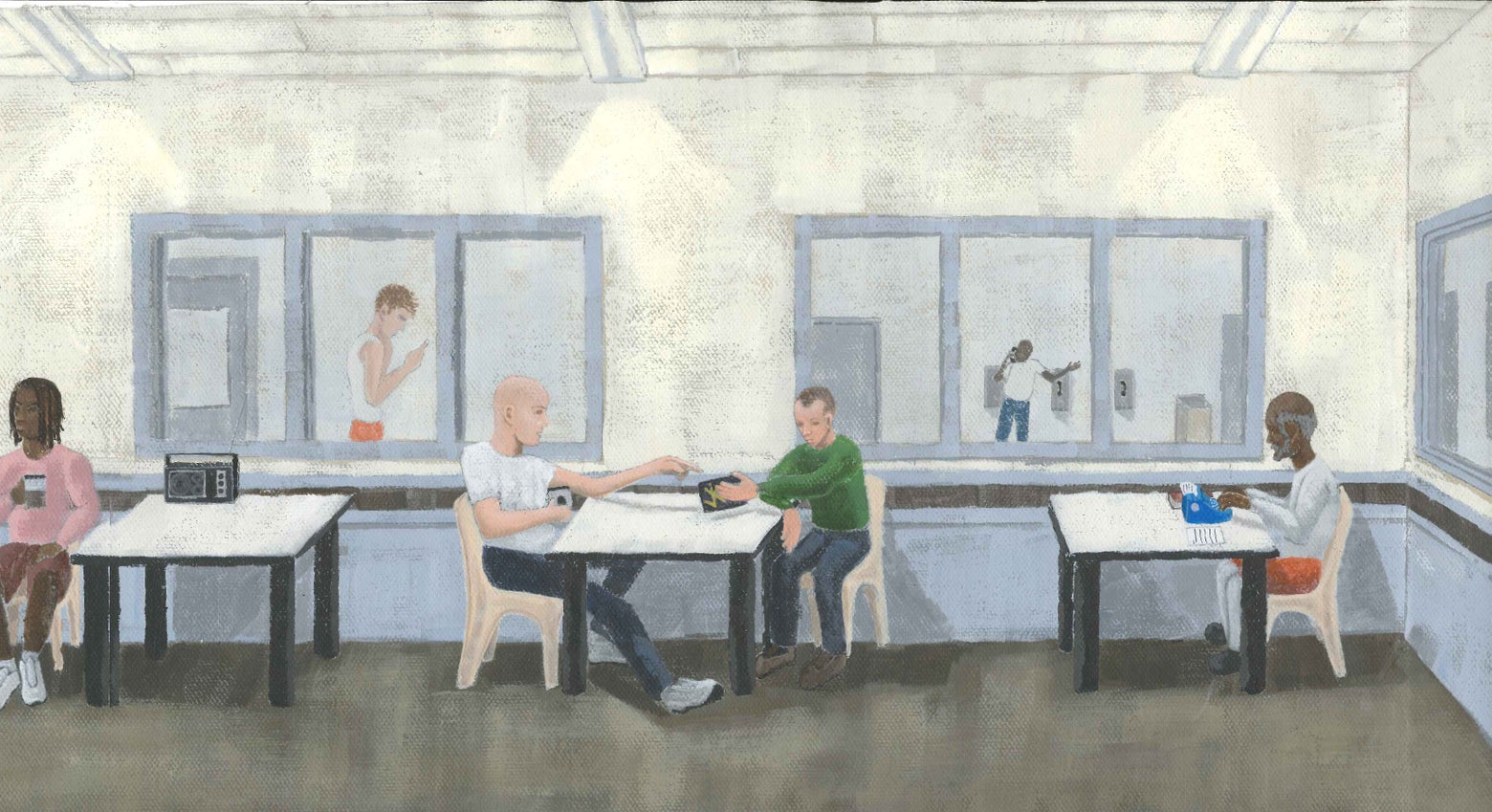- 23 Posts
- 62 Comments
I think I agree, but I’d phrase it a bit differently. The problem in our country isn’t division, it’s that there’s an energetic fascist movement that needs to be stopped. The problem with assassinating Trump is that it gives that movement a martyr and would very much energize them (disorganize them too, since they wouldn’t know for sure who to follow anymore, but they’ve never needed to be too organized to do damage and they could do plenty before succession fueled infighting really started to take a toll).
Killing Trump won’t kill his ideas, the only way to do that is to embarrass Trump and Trumpism badly, so I think the best series of events would be a) Trump loses the election, b) prosecutors explain Trump’s many crimes in meticulous detail to a series of juries who sentence Trump to years and years behind bars, c) Trump dies of a heart attack while taking a shit in prison.
The fact that the voters already did a) once in 2020 and the system’s let us down on b) is deeply frustrating and worth acknowledging for the sake of identifying the country’s underlying problems (it’s the politicians and lawyers more than it is the voters), but it doesn’t change the fact that assassinating Trump is the last thing we want to do at this point.
I don’t recall learning about the last time the Tops grocery shooter looked at porn

 4·19 days ago
4·19 days agoLol, yeah, I’m really good at being nuanced and understanding right up until somebody starts talking about a person or subject that hits one of my angry buttons, and then I’m all “Bill Clinton will pay for his many crimes when the revolutionary vanguard takes power!”
But, yeah, when I’m not pissed beyond reason the thought I keep coming back to is that we all need each other to keep fascism at bay

 51·19 days ago
51·19 days agoYeah, say what you will about free market acolytes, they know how to jump on to a successful brand

 6·19 days ago
6·19 days agoI already dropped one wall of text on this post, but something you might find interesting - there was a history podcast called Revolutions that looked at revolutionary periods in history, when it wrapped up the host did a whole series of appendix episodes on different recurring themes he saw in the different periods he looked at, and in one of those he talked about how the word “radical” can be hard to define because throughout history there were people who had radical goals they wanted to achieve through moderate means and people who had moderate goals they wanted to achieve through radical means and the inverse of both of those
https://yewtu.be/watch?v=0nukt_9HmLE&t=2m21s
So yeah, I think it’s helpful to separate out how big a transformation in society you want to see from how far you’re willing to go to get them

 12·19 days ago
12·19 days agoSo, this is a very complex topic I don’t have the time to give the treatment it deserves, but to try to give a very summarized historical viewpoint on it -
Liberalism was a set of ideas that cohered around the 18th century as a reaction to monarchism that emphasized universal civil rights and free markets (there were a ton of weird things going on with noble privileges and state monopolies issued by royal administrations and mercantile economics this was a response to)
Socialism was a set of ideas that cohered around the 19th century as a reaction to liberalism (and the whole industrial revolution) that said universal civil rights didn’t go far enough and we needed to establish universal economic rights. Some socialists think the only way to achieve these things is by overthrowing or limiting the power of governments and ripping up contracts between private parties, which liberals tend not to like.
Progressivism was (sort of, I’m being very reductive here) an attempted synthesis of these traditions that cohered around the early 20th century, and (essentially) argued “ok, free markets but restricted by regulations (e.g. you can’t sell snake oil, you can’t condition the sale of property on the purchaser being a specific race), and open elections for whoever the voters want but with restrictions on the kinda of laws that can be passed” (e.g. no poll taxes).
Like I said, I’m simplifying a lot here and I’d encourage reading Wikipedia pages and other sources on all of these things (like, I’m eliding a whole very dark history progressives have where their attempts to perfect society had them advocating for eugenics and segregation early on because there was academic support for those ideas at the time, and there’s a lot more to be said on how a lot of the first anti-racist voices were socialist ones and why it took progressives and liberals time to get on the right side of that issue, and how fights for colonial independence tended to be led by socialists and against liberals), but the fact that liberals progressives and socialists are all ostensibly “on the left” is a big cause of the infighting we see.

 103·19 days ago
103·19 days agoI mean, academically speaking you’re totally right, but because Americans discuss politics in extremely simplistic terms a lot of people use the word “liberal” when they mean progressive or socialist or just anything to the left of center, so it would probably be helpful to define these terms a bit

 26·21 days ago
26·21 days agoOh yeah, the one that goes “cut my land into pieces, for oligarchs’ resorts”

 15·25 days ago
15·25 days agoHomeless people with French citizenship are being left alone entirely I’m sure /s

 91·1 month ago
91·1 month agoI’m pretty sure the WJET/WFXP tag on the front of the article means it’s a reprint of an article originally written by the Fox TV affiliate for Erie, Pennsylvania, so yeah this is like a content mill husk that most for-profit local news in America has turned into being regurgitated by a source somehow even more soulless and predatory
Anyway, mirror link - https://web.archive.org/web/20240705144933/https://www.yourerie.com/technology/japan-sets-world-record-for-the-fastest-internet-speed-ever/
Looks like mądry Polak po szkodzie isn’t always the case

 252·2 months ago
252·2 months agoAnd the US government is going to hold a vote on a plan to make it harder for people to migrate today

 52·3 months ago
52·3 months agoYeah, I’m skeptical of this story to begin with, but even if it is true it doesn’t make any real difference

 341·4 months ago
341·4 months agoOther websites: “You guys always act like you’re better than me!”
Lemmy:

 232·4 months ago
232·4 months agoNobody places less value on Russian life than Russian leadership, from the Tsars onward

 5·4 months ago
5·4 months agoSome possible misinformation that’s going around related to this story, Bloomberg says Dubai’s cloud seeding program is to blame, Wired says Bloomberg is wrong about that. The Wired article sounds better informed and more persuasive imo.

 385·4 months ago
385·4 months agonow makes it hard for allies to rein in support
Which they were totally doing before now /s

 18·4 months ago
18·4 months agoI don’t know nearly enough about the different sides here, but a quick skim of the Wikipedia page for the Karen National Union and the National Unity Consultative Council that they’re members of makes it sound like they’re pro-democratic and anti-racist, so, yeah - keep kicking military dictatorship ass!

 64·5 months ago
64·5 months agoThe devices should be returned to inmates immediately, prison administrators should then slap themselves in the face one time for implementing them poorly to begin with, slap themselves in the face several times for overreacting to a viral story without having any reason to believe there was an active or imminent problem with any of their inmates, and deliver a tooth-loosening punch to their own faces for thinking they could punish these inmates by taking away their education to cover their screw up.
After that, hire a real IT person who knows what they’re doing by paying them decently allowing remote work and not drug testing, and then listen to them.


















Also, I’d be amazed if they didn’t have a way to get contact information from non-political sources. Like, off the top of my head - if I’m running a Dem campaign I’d be talking to every car dealership I could and seeing if I can buy their list of people who signed up for updates on EV availability to see if I can turn some of those people to donors, and I’m pretty certain there’s no laws or regulations that would stop them from doing that.